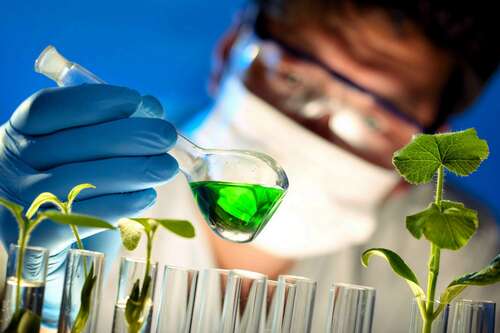
The Commission argues biotech in the EU faces several challenges, including difficulty in transferring research to the market, shortage of skills and limited access to finance.
The European Commission has unveiled a series of actions aimed at boosting the biotech and biomanufacturing industries in the EU despite numerous challenges.
“Advances in life sciences, supported by digitalisation and artificial intelligence (AI), and the potential of solutions based on biology to solve societal issues, make biotechnology and biomanufacturing one of the most promising technological areas of this century,” the Commission wrote yesterday (20 March).
“They can help the EU to modernise its agriculture, forestry, energy, food and feed sectors and industry. In addition, these technologies can contribute to a more competitive and resilient EU, that provides better healthcare to its citizens and succeeds in its green and digital transitions.”
Biotech advancements are important to various sectors, including health, agriculture, food and environment. In health, for example, biotech has led to many medical breakthroughs such as insulin and mRNA vaccines, including the ones used during the Covid-19 pandemic.
But the Commission argues that the biotech and biomanufacturing sectors in the EU face several challenges, such as difficulty in transferring research and technology to the market, regulatory complexity, access to finance, shortage of skills and public acceptance.
Biotechnology and biomanufacturing are key to solve some of our most pressing challenges.
Today, we’ve proposed a series of targeted actions to boost these fields.
This will contribute to create the right environment for the sector to grow and deliver global solutions.
More ↓
— European Commission (@EU_Commission) March 20, 2024
To address some of these concerns, the Commission has launched a study to investigate the EU’s position compared to other global leaders in emerging biotech generation and transfer to the biomanufacturing industry.
It will also review the assessment of fossil-based and bio-based products to ensure equivalence of treatment and incorporate methodologies for carbon storage in construction materials, as well as streamline regulatory pathways to “shorten the time to market” for biotech innovations.
Other measures, such as fostering public and private investments, strengthening biotech-related skills and updating European standards on biotech will also help the sector overcome challenges and get back up on its feet.
“Everywhere across Europe, we are faced with the same problems. Climate change affects us all. Resource scarcity affects us all. Inequality in health treatments affects us all – with rare diseases that still can’t find any cure. To many of these problems, biotechnology provides solutions. These days, we are witnessing nothing less than a small revolution in the area of biotechnologies,” said commissioner Margrethe Vestager.
“The potential of this sector in Europe is simply huge. And it is made by a diversity of different players. Small rising start-ups, mid-size businesses with an already international footprint, all the way to well-established worldwide leaders.
“European biotech businesses may be affected differently by those barriers to growth, depending on their size, or their specific sector. But in one way or another, they all need active support to overcome the barriers.”
Find out how emerging tech trends are transforming tomorrow with our new podcast, Future Human: The Series. Listen now on Spotify, on Apple or wherever you get your podcasts.

